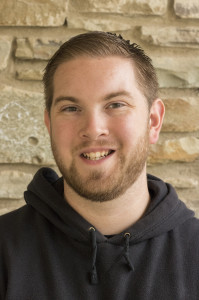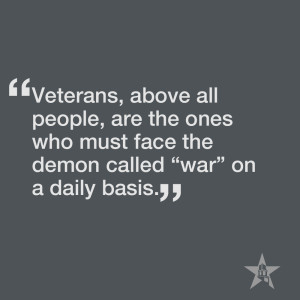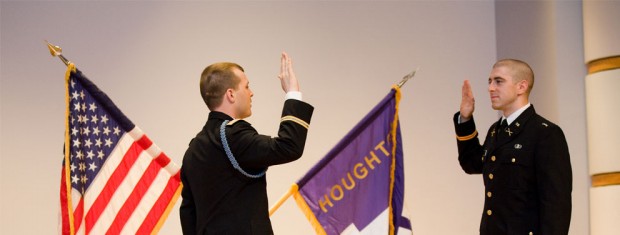Today is Veterans Day 2016. This is the holiday on which we honor all those who served, or are serving, in the United States Armed Forces. Earlier this week we had a Presidential Election. Many of us exercised our right to vote for our leaders and representatives in the government. For most citizens, however, their contribution to the maintenance of society goes no further than casting a vote every few years. Not so for a veteran. President Reagan said, “Some people spend an entire lifetime wondering if they made a difference in the world. But the Marines don’t have that problem.” This sentiment gets at the heart of the civilian/soldier divide. Because the Marines (and all veterans) pledged themselves to a cause greater than the individual, they will never worry whether their contribution to society mattered. Every veteran, in the Oath of Enlistment, said these words: “I do solemnly swear that I will support and defend the Constitution of the United States against all enemies…and that I will obey the orders of the President of the United States and the orders of the officers appointed over me…” Veterans are those who were willing to give their lives in the service of our nation as a whole, to sacrifice their personal dreams for the sake of a bigger one, to value the good of the community over that of the individual. They are the most selfless among us, and while they do not seek or ask for honor, they deserve it.

But November 11 was not always celebrated as Veterans Day. Previously it was known as Remembrance/Armistice Day (as it still is in most countries outside the U.S.). This was the day on which the Great War came to an end. It was supposed to be the end of “the war to end all wars.” Unfortunately, the Great War was not the end of all wars; on the contrary, a second world war shortly followed the first, bringing with it to earth a part of hell never seen before or after. We have seen genocides on almost every corner of the globe, conflict in the Middle East, and the rise of global terrorism. War has by no means gone away.
But, as President Obama said earlier this year, “We’re fortunate to be living in the most peaceful era in human history,” a fact attested to by historians and sociologist. Even though the world has been, and in some regards still is, a brutal and nasty place, things generally are getting better. Globally, we are living longer than ever, extreme poverty is declining, deaths from major diseases are at an all-time low, and back to this piece’s topic, deaths from war are now at a historic low point. Of course war has not been eradicated, but it seems as if the sacrifices of previous generations have payed off, at least for now.
 Armistice/Veterans Day provides the opportunity to reflect on the past and, hopefully, to apply what we can learn from reflection towards building a brighter tomorrow. Veterans deserve our recognition and respect because they were willing to sacrifice a part of their lives and autonomy in service to the greater good. But as General Schwarzkopf said, “Any soldier worth his salt should be anti-war.” Veterans, above all people, are the ones who must face the demon called “war” on a daily basis. They know what it will cost them and their loved ones. They have seen what war is, and found it wanting. It is not something to be sought after, desired, or romanticized; it is hell, and nothing more.
Armistice/Veterans Day provides the opportunity to reflect on the past and, hopefully, to apply what we can learn from reflection towards building a brighter tomorrow. Veterans deserve our recognition and respect because they were willing to sacrifice a part of their lives and autonomy in service to the greater good. But as General Schwarzkopf said, “Any soldier worth his salt should be anti-war.” Veterans, above all people, are the ones who must face the demon called “war” on a daily basis. They know what it will cost them and their loved ones. They have seen what war is, and found it wanting. It is not something to be sought after, desired, or romanticized; it is hell, and nothing more.
Hopefully we will find ourselves in a future where there are few to be honored as veterans because there is little need for soldiers. To quote Einstein, “I know not with what weapons World War III will be fought, but World War IV will be fought with sticks and stones.” We live in a world in which one nuclear (or other technological) mishap could seal the fate of our species. The first two world wars were devastating, and altered the course of history in incalculable ways; but I tremble at the thought of a third. For if there is one, it will surely be the last. So let us not forget the sacrifices made by our veterans; use this day to honor those deserving of honor. But if we wish to see a brighter tomorrow, we must labor together to beat our swords into plowshares, our spears into pruning hooks, and to learn war no more.
Matt is a U.S. Army veteran and a junior philosophy major.

